Why I Love My Pricey Eats
Posted by Jill | February 8, 2011 | Filed under: Home, Ingredients
Why-oh-why-oh-why-oh-why did I say I’d write a post about why I pay more for my food?
It sounded like an obvious and simple post to write at the time.
I poured a cup o’ joe and perched my laptop on my knees. I stared at my blinking cursor. I felt confused.
My reasons are fluid. I originally reached for some of these foods out of curiosity. I now reach for them for their myriad satisfactions. I don’t have hard, fast rules about what I buy. I buy what I enjoy but I enjoy these things for lots of reasons.
Well then, let’s make this as understandable as possible.
First off, what specifically do I buy? This list is in approximate order of importance to our diet.
• In-season produce: In the summer, we eat almost exclusively local and seasonal. In the winter, it gets down to 50%. Around March, I am so over cabbage and root vegetables.
• Highest quality dry goods: For me, that means flours and legumes. Sometimes I go organic, sometimes not.
• Artisan products: breads, cheeses, olives, pickles. If I can look the gal who made it in the eyeballs, it tastes better.
• Pasture-raised dairy products: milk, buttermilk, cream, cheese
• Pasture-raised meat: beef, chicken, eggs and pork. This meat comes from animals which are generally raised on small farms. They eat a diet that optimizes their health and live in situations that respect the needs of their species.
• Highest quality chicken breasts: Not organic. Just antibiotic, hormone and solution-free. They’re individually vacuum sealed. I use them to satisfy picky guests, to make chicken nuggets, and to fill in chicken soups if I need to.
• Wild-caught seafood
• Prime-quality hormone- and antibiotic-free steaks: I buy super-high quality steaks that did spend some time on a feedlot. These represent a pretty tiny portion of our menu.
These lovely foods often cost more than their conventional cousins. Sometimes, however, they actually cost less. Buying produce at the farmer’s market in June probably costs me less than buying strawberries from the grocery store in January. I have a process and routine for shopping that enables me to obtain these things without making a heroic effort.
Why bother?
Taste
That seems like a simple answer. It is not. For some foods- like chicken- the taste difference jumps out like the difference between a sackcloth dress and a silk gown. For other products, the taste isn’t hugely distinct. Though I can taste the difference in many things, I know some folks can’t really taste those subtleties. Nonethelesss, if you put farmstand, organic, and conventional celery in front of me, I doubt I could tell which was which.
The taste of pasture-raised meats is unpredictable. Depending on what the animal ate or its breed, one pork loin may taste totally different from another. That keeps dinner interesting. The same preparation may taste a bit different from meal to meal.
Taste is all about perception. This is why many restaurants that want to charge you $150 for dinner must paint your plate with colorful sauces and wow you with sculptural food creations.
There is a perceptive component to my enjoyment of my food that is about more than just prettiness. At my farmer’s market there is a bread-maker whose passion for his craft is baked into the loaf. He loves to describe the process of obtaining natural yeasts from grapes or the arduous 1000-mile weekly trip of his organic wheat supplier. Knowing this man makes his bread taste joyful.
Nutrition
Nutritional news is as likely to grab my attention as my children’s bickering in the back of my minivan. It is white noise that isn’t all that interesting, useful or informative.
As a student of culinary history, I can tell you lots of stories about how- almost without exception- the nutritional intelligentsia steered the diet of the American public into a slough. Always armed with the latest research, American families adopted low-fat diets, margarine, artificial sweeteners, the four food groups—blah, blah, blah. We’re supposed to eat an Asian diet- oh wait, make that a Mediterranean diet- but, well there might be something to a French diet. Shut. Up.
I don’t know what the optimal diet looks like. However, I must lay my bet so I’m going with:
• smaller relative portions of meat from healthy animals
• higher relative portions of produce and legumes
• natural amounts of fat
• minimally processed foods
• intuitive consumption (Eat when you’re hungry. Stop eating when you feel full.)
Do I think that “eating healthy” will keep me from getting cancer or heart disease? I don’t even know.
Would I feel ripped-off if I ate like this and then did get cancer? No, because I enjoy what I eat. I’m not missing anything. I don’t eat crappy-tasting health food.
Besides, it does help me look okay in yoga pants…
Values
A few years ago, I had the privilege of visiting two conventional dairies. My sister was a school teacher near a farming community in Michigan. Two of her students were the children of dairy farmers. She took her class on a field trip to one. The other farm we simply got to visit because she had become good friends with the family. Both farms were conventional. Both families loved dairy farming and really seemed to care about their product and the well-being of their animals. Both families worked very hard to sustain a nice middle-class lifestyle.
None of the cows on either farm ever left the sheds. All of the cows were artificially inseminated. All of the cows were fed scientifically formulated feed ratios.
Both farms left me feeling burdened. I felt sorry for these cows. I think its fine to raise them for their milk (that really is the price of admission for the life of a domesticated animal) but shouldn’t we give them a little sunshine in return? Hell, why not give ‘em a little sex while we’re at it?
I don’t think the farmers who raise conventional milk are bad or unenlightened. I’m not morally superior to the mother who gives her kids conventional generic-brand milk. Rather, I simply get pleasure from knowing that the milk I drink comes from cows that had a chance at a full life. I’m not exhalting them. I’m not an animal rights activist. It just feels like an integrity thing to me.
And for the record, it tastes much better and is a joy to cook with.
To some extent, the answer to the question, “What’s the value of pricey food?” is “gratitude.” All of these practices of buying better food help me eat with gratitude. Because I know the family who grew our apples, I am grateful for their labor. Because I know that strawberries will only last for a month, we savor them, adore them, and gorge on them until we’re almost glad they’re gone. Because I recognize that a real animal lived and died to feed me, I want to do what I can to make sure that animal’s life was respected. Because I can only eat so much food before I’m full, I want to make sure it tastes fantastic.

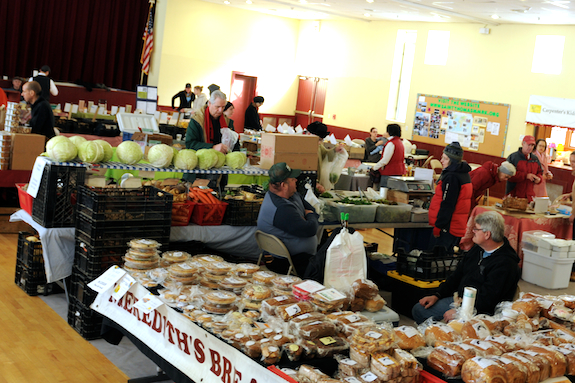
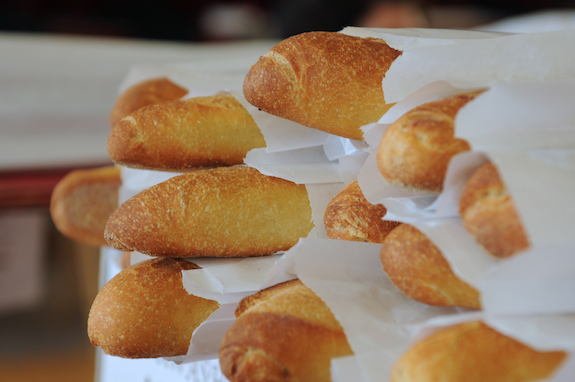
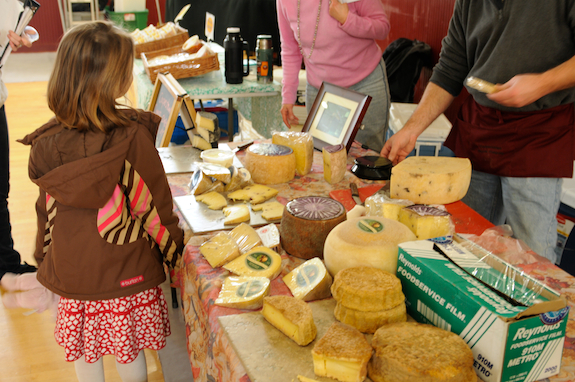

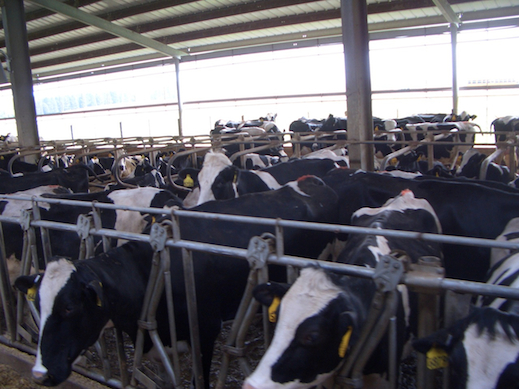
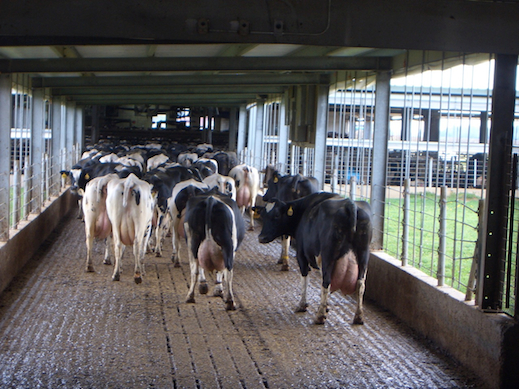



Comments
One Response to “Why I Love My Pricey Eats”Trackbacks
Check out what others are saying about this post...[…] Stay tuned. I’ll post that answer next week. […]